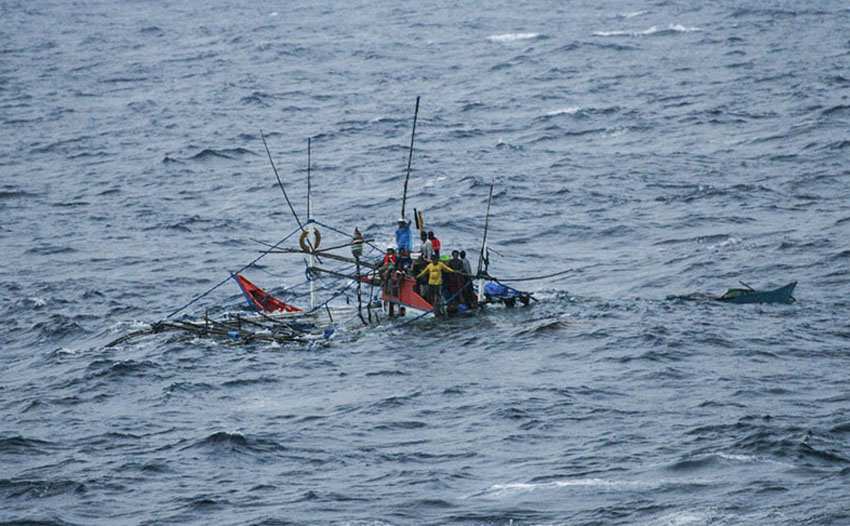Being stranded in the ocean is quite possibly one of the most frightening experiences one could ever face. Not only do you have to worry about the possibility of drowning, you never know when or if rescue workers will come to your aid. You might be far away from land, which could make the ocean feel even more daunting. The idea of looking in every direction and not being able to see anything but water is a nightmarish thought, especially if we’re not in a boat! It's important to remain calm so you can properly think about your situation and how to survive it.
If your situation arises because of an aircraft going down or a boat sinking, chances are a distress call was sent out on a radio beforehand, and there may be rafts or other flotation items which can assist you. Aircraft are always being tracked and watercraft of any ocean going size almost always has a ship to shore radio. However, prior to or once in the water, locating a flotation device is paramount. Try to minimize movement to conserve energy and not alert predators, especially if you are in an ocean. Here are some tips for survival until help arrives.
Self-floating: In calm waters
- Remain calm at all times.
- If the water is calm, lie on your back and float by keeping your lungs filed most of the time, being sure to breathe rhythmically without hyperventilating.
- Continue this until rescued or until you have floated close enough to shore to swim in.
Self-floating: In rough waters
- You'll often need to float with your face frequently in the water. This will prevent you from accidentally getting water into your lungs. Of course you'll need to lift your head once in a while for air, but practice this position often to avoid taking water into your lungs.
- Preserving energy is vital. You must stay focused and avoid panicking, which can cause excessive movement leading to premature fatigue.
The human body can't survive without water for more than a few days. This means despite the fact that your position has probably been sent to rescue teams by radio, you'll need to start thinking about finding a source of drinking water in the event you are not discovered immediately. You can follow these steps to help keep yourself hydrated if you find yourself stranded in the ocean:
Fresh water means survival: One can only survive 3 to 5 days without fresh water
- Rain water – If it begins to rain, try to use any objects at your disposal to capture as much rain water as possible. If you can, store some for the days when rain isn’t occurring. Make sure whatever objects you use to collect rain aren’t contaminated by salt water.
- Fish – If you’re able to catch fish, you can use the liquid in its eyes, flesh and spine for survival. While not terribly enjoyable, it can be essential to your survival. If you have knife on hand, cut the fish open and break it's vertebra for additional fluids. Avoid consuming the liver as the concentration of vitamin A can be toxic.
- Salt water – This is your last resort, as drinking salt water could lead to kidney failure.
The human body can't last more than a few days without water, but eventually you'll need to find a source of food if you’re stranded out in the ocean long enough. Here are a few options:
- Fish – If you can capture fish, you can use them to both hydrate yourself and nourish yourself.
- Seaweed – If you come across any drifting seaweed, look through it as you may find crab, shrimp or fish to consume.
Aside from nutrition and hydration, you also need to focus on being found. If you were involved in a plane crash, it's in your best interest to stay as close to the crash area as possible. If there are multiple floating objects, try bringing them all together and perhaps connecting them, as this would make them easier to see from the air and also act as a partial shield against predators. Rescue workers will try searching this area first for any survivors and straying too far away from the crash could decrease your chances of being found. If you have a flare gun, save this for when you see or hear a plane nearby. Flare guns are a distress signal to a passing aircraft. If you don't have a flare gun, try finding any reflective material to signal any planes that come within sight.
